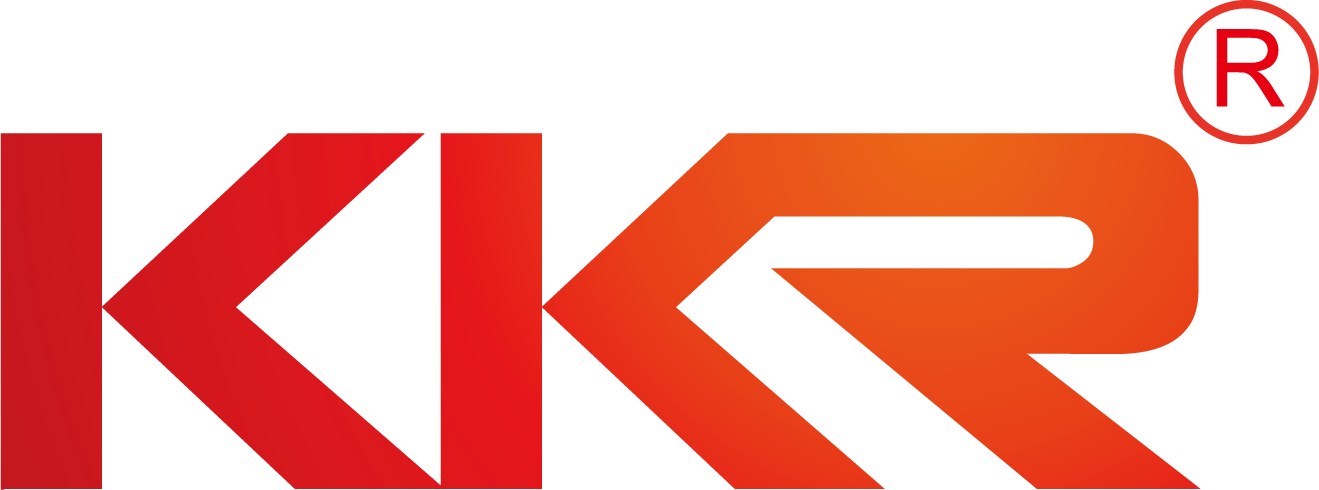How to Use a Wudu Wash Basin for Ablution?
For Muslims, taharat (purification) is a central pillar of Islam. All believers attach special significance to cleanliness not only to hygiene, but also to spirituality, to prepare both the body and the soul to pray.
Five daily prayers mean at least 35 weekly wudu sessions for practising Muslims. That's a lot of time spent at the sink. But here's the thing—most bathrooms weren't built with ablution in mind.
Regular sinks sit too high, and bathtubs force awkward bending. Footwashing in uncomfortable positions strains the back and legs. A proper wudu wash basin changes all of that, making the act of purification smoother, more comfortable, and spiritually fulfilling.
What Makes a Wudu Sink Different?
A wudu wash basin sits 18 to 24 inches off the floor, compared to standard bathroom sinks, 32 to 36 inches. The lower height makes all the difference when washing feet.
The bowl itself is broader and more profound. More space means less splashing; better drainage handles the water volume from repeated washing. Some wudu wash basins also feature textured surfaces inside the bowl, providing extra grip and stability during foot washing, making the ablution process safer and more comfortable.
Separated wudu stations are not new to the mosques. The modern home designs are doing the same on a smaller scale today, introducing the family to the comfort and convenience of mosque-like ablution in their homes.
Materials That Hold Up to Daily Use?
Choosing the right material is just as important as the design itself—durability, ease of cleaning, and long-term performance all affect how well a wudu wash basin serves daily ablution needs
1. Solid Surface Leads the Pack
Solid surface material is the best in wudu basins. The surface does not contain pores, so bacteria and mould do not settle, and water does not soak up; instead, it slides off.
KingKonree manufactures solid-surface sanitary wares that can endure continuous water exposure. Daily washing doesn't wear down the material like it does with regular options.
Here's what solid surface offers:
- No seams means no leaks
- Cleans easily with basic soap
- Minor damage buffs out
- Available in multiple colours
- Typical lifespan hits 15-20 years
2. Ceramic Stays Reliable
Ceramic continues to be a popular choice for mosque wudu installations due to its durability and ease of maintenance. Hot water never breaks them, and cold water never harms them. The glazed finish is stain-resistant and wipes easily. Areas of heavy traffic use ceramic because of its toughness. Daily use by dozens or hundreds of people doesn't break it down.
3. Steel Works in Commercial Settings
Stainless steel is a good choice to be used in airports and shopping centres. It withstands constant use without breaking, and it better resists accidental damage than other materials. The downside? Steel scratches easily with the wrong cleaners, and water spots show up fast. Regular polishing is needed to maintain its shine.
Steps for Proper Ablution
● Make the Intention
Niyyah comes first, before water touches skin. This mental step separates ritual washing from regular cleaning.
● Wash Both Hands
Turn on the faucet. The water flow must be moderate, not blasting. Wash both hands up to the wrists three times. Get water between the fingers and under the nails. A wide basin gives room to wash without water going everywhere.
● Rinse the Mouth
Cup the right hand under the water. Bring it to the mouth and rinse three times. Swish the water around, then spit into the basin.
● Clean the Nose
Take water in the right hand. Sniff it gently into the nostrils. Use the left hand to expel the water. Three times does it. The Muslim wash basin needs good drainage for this step.
● Wash the Face
Splash water from the forehead down to the chin, then go from ear to ear. Do this three times, making sure water covers everything. The basin height allows a comfortable forward lean.
● Wash Both Arms
Start with the right arm. Wash from fingertips to elbow three times. Then the left arm gets the same treatment. Water runs down into the basin naturally.
● Wipe the Head
Wet both hands and wipe over the head from front to back. Once is enough. Some people also wipe their ears at this point.
● Wash Both Feet
This step proves why a dedicated wudu wash basin beats regular sinks. Put the right foot in or over the basin. Wash from toes to ankles three times. Water needs to get between all the toes. Then repeat with the left foot. The lower height saves the back from strain. The interiors are lined with non-slip material to prevent slipping in the washing process.
Some Tips on Wudu Basin
♦ Daily Maintenance Tips
Wipe the basin after each use. The soap scum develops quickly when neglected. Always have a small brush near the drain to clean it weekly. When left unattended, hair and debris block the drains.
Check faucets every month for drips. Loose handles need tightening. Even small leaks cost hundreds of gallons. Fix worn washers right away. Deep cleaning should happen monthly. Use cleaners matched to the basin material. Solid surfaces need different products than ceramic, and steel requires its own care routine. Before applying harsh chemicals, check what the manufacturer has recommended.
♦ Home Installation Basics
Installing at home requires planning. Because of its lower height, the basin needs both hot and cold water drainage systems. Hire professional plumbers experienced with wudu basin installation. They handle building codes and prevent future problems.
Things to consider:
- Enough floor space for standing and moving around
- Wall support when choosing a mounted model
- Waterproof flooring near the basin area
- Bright lighting for seeing while washing
- Ventilation to control moisture
♦ Picking the Right Basin
A home requires different needs than a mosque or other crowded areas. A house may need a smaller setup, whereas a mosque with hundreds of people needs stronger and bigger stations. Each location has its needs. Wudu sinks are available in numerous styles and colors, such as white, black, golden, and even marble, which allows them to fit the interiors of various styles. They are made of solid surface material, both strong and graceful, making them suitable in residential and high-foot-traffic environments such as mosques.
- Available space determines size and mounting style. Wall-mounted designs that save floor space benefit compact homes, while larger facilities accommodate multi-user stations.
- Budgeting is essential; however, consider long-term costs. Solid surfaces are more expensive, but the increased cost is compensated for by less maintenance and longer life. Calculate real expenses using the period of 10-15 years.
- Faucets should be installed lower for comfortable foot washing and kept within easy reach. The design of a wudu basin should always consider the needs of its primary users.
KingKonree Solid Surface Solutions
KingKonree manufactures premium solid surface sanitary ware specifically built for durability and hygiene. Their wudu sink designs combine traditional ablution requirements with modern material engineering.
Each basin features seamless construction that prevents leaks. Simple maintenance keeps them looking new for years. The solid surface material resists bacteria naturally without special treatments or coatings.
Custom options allow the Muslim wash basin to fit perfectly in any space. Residential installations receive the same quality standards as commercial projects, and colour matching ensures the basin complements the existing bathroom design.
The manufacturing skills are evident in the minutest details. The depth of the bowl is designed to avoid splashing, and the positioning of the drainage will allow the water to flow efficiently. Faucets have been placed in strategic locations, thus making every stage of the washing process comfortable and straightforward.
Common Questions About Wudu Sinks
Q: Can multiple people use a wudu sink at the same time?
Single-bowl designs fit only one person at a time, whereas multi-station units allow multiple people to wash simultaneously. Each of these units is drained and fauceted separately. Shared spaces need extra care. Wipe away water after finishing so the next person finds a clean surface.
Q: Is there a recommended water temperature for wudu?
Islamic teachings don't set specific temperatures. What matters most is Getting clean. Normal room temperature water is enough, though slightly warm or cool water may be added according to the weather to add comfort.
Q: Can wudu be performed if the sink is partially blocked or damaged?
Yes, it is still possible to perform wudu when the sink is partly blocked or broken down, provided that clean water is present and it is flowing in such a manner that you can clean yourself. The correctness of wudu in Islam relies on cleanliness and proper washing procedures.
Q: Are wudu sinks different for men and women?
No difference exists in the physical design. Men and women follow identical washing steps. Some facilities have separate washing areas for privacy. The basin specifications stay the same regardless.
Q: Can wudu sinks be used for other purposes besides ablution?
Most facilities keep these basins for ritual washing only. Home installations offer more flexibility. Families sometimes wash feet or rinse small items in their wudu wash basin, and the lower height proves handy for children and various household tasks.
Getting a Basin That Lasts
Quality fixtures matter for daily religious practice. Cheap materials may fail when used multiple times every day. A proper Muslim wash basin from a reliable manufacturer handles the demands of regular ablution. Muslim wash basins or wudu sinks, from KingKonree, offer the best combination of hygiene, durability, and aesthetics. Their manufacturing process has created basins that reliably have served Muslim families and communities for decades. Contact KingKonree today to explore solid surface wudu wash basin options designed for lasting performance.

Quick Links
KingKonree Products
Company Info
Address:Room No. 2408-2508, Building 5A, Longguang Jiuzuan, Longhua District, Shenzhen, China
Zip Code: 518131
Tel: +86 (0)755-82875700
Fax: +86 (0)755-82875921
 KingKonree -
KingKonree - 









